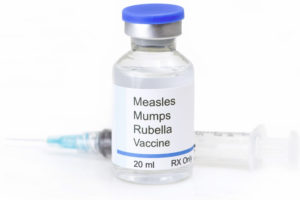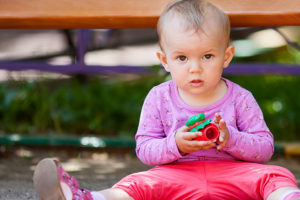Transitioning to Kindergarten
It’s graduation time at The Learning Center. For some parents, the transition to kindergarten could evoke a range of feelings and anxieties. Other parents may worry about how their child’s needs will be met in a larger setting school. They may be anxious about the separation from the relative security and intimacy of preschool to what they may view as a larger and less personal school system.
There are tons of materials available online to help you cope with these anxieties. Here is some helpful extracts from the best articles we picked on transitioning to kindergarten.
Tips to help you prepare your child for Kindergarten (by Tracy Galuski, associate professor and mentor at Empire State College, https://www.naeyc.org):
- Help him to develop independence at home. Encourage your child to dress himself, take his coat on and off and hang it up, use the bathroom without assistance and wash his hands without constant reminders, and put on his own shoes. Provide serving spoons so your child can serve himself at the table and clear his own dishes. These skills will take him from the coatroom to the lunchroom and beyond
- Focus on self-help skills. Your child should know how to wipe her face after lunch without prompting and blow her nose without assistance. But be sure she is also comfortable asking an adult for help when necessary.
- Teach responsibility. Start transferring small responsibilities over to your child, if you haven’t already. After a family trip to the pool, you might put your child in charge of emptying the backpack, refilling the water bottles, or hanging up his wet swimsuit. Even when it may be easier for you to complete these tasks, let him accept the responsibility.
- Develop and follow routines. Set up morning routines that will transfer into a school setting. Getting up around the same time every day, getting dressed, and having an early breakfast together is a great way to transition to school.
- Read aloud to your child. Get your child a library card, take her to the library to check out books, and be sure to read to your child every day. Read a variety of books, read the captions under pictures in the newspaper, even share the comics. Just read!
- Engage her in meaningful literacy activities. Encourage your child to help you with thank you cards, shopping lists, or notes. They may start with scribbles or pictures, move into scattered letters, and finally some recognizable words as they enter school. Appreciate their attempts and watch their skills develop with practice.
- Acknowledge his feelings. Avoid talking about school too much, or wait until the end of summer is near. Your child may express being nervous, not wanting to go or, alternately, feeling very excited to start school. Whatever they feel, take time to appreciate where they are.
Resources for Parents and Educators (By The Florida Office of Early Learning, http://www.floridaearlylearning.com)
These resources are from a variety of states and sources. They are offered to provide ideas and a springboard for prekindergarten programs and elementary schools to help provide support to both children and families during the transition from prekindergarten to kindergarten. The Office of Early Learning does not endorse any particular plan.
Transition to Kindergarten – Head Start: An Office of the Administration for Children and Families Early Childhood Learning & Knowledge Center. This web page includes videos (Transitions from the children’s perspective; Transitions: A community perspective on transitioning into kindergarten), a variety of planning resources and partnerships.
Get Ready to Read! Transitioning to Kindergarten Toolkit – This website has information about the importance of preparing children for the transition, screening for kindergarten and preparing parents. Materials are available online and can also be downloaded.
A Parent’s Guide to a Successful Kindergarten Transition (PDF – 170 KB) – National Education Association, 2005. Informational brochure for families about successful strategies to transition children from preschool to kindergarten.
Paving the Way to Kindergarten for Young Children with Disabilities – Amanda Fenlon, 2005. Entering kindergarten can be a joyful but anxious time, particularly for parents of children with disabilities. These best practices can help make for a smoother transition: using a collaborative team approach to involve families, setting transition goals, and focusing on the needs and strengths of individual children.
Ready for Success: Creating Collaborative and Thoughtful Transitions into Kindergarten – Christine Patton and Justina Wang, September 2012. This outlines how to help make the transition into kindergarten a positive experience that will serve as a foundation to help children reach their full potential throughout their school years. This includes promising practices from the state and local levels and recommendations to policymakers.
A New Approach to Transitions: Welcoming Families and Their Ideas Into Kindergarten Classrooms – Ken Smythe-Leistico, March 2012. The Ready Freddy model defines quality kindergarten transition as activities and interactions that welcome families and children into kindergarten, help children get ready to learn in a formal setting, reduce anxiety, increase on-time enrollment and attendance, foster parent involvement and create continuity of learning between home and school. There are links to the Ready Freddy website and additional materials and resources.
Resource Guide for Early Childhood Transitions: Annotated Bibliography – Harvard Family Research Project, Briana Chan, September 2011. This resource provides a selected listing of journal articles, research briefs and reports that focus on early childhood transitions and school readiness. They cover a variety of topics central to early childhood transitions, including family engagement and home–school and program–school partnerships.
Kindergarten Home Visit Project – Amy Schulting, January 2011. Home visiting gives families and schools the opportunity to build a positive foundation for future communication. Teachers and school leaders looking for ways to improve home-school connections should consider the positive potential of visiting the home. The Kindergarten Home Visit Project encourages families and educators to communicate well before the first day of school to help children succeed during this important transition.
Family Support Services Promote School Readiness – Shari Golan, Dona Spiker, Carl Sumi, December 2005. To ensure California’s children are ready to succeed in school and life by the time they enter kindergarten, First 5 California launched the School Readiness Initiative in 2001. The SR Initiative targets high-priority schools that serve communities with high levels of poverty and ethnic diversity. Efforts have focused on improving family functioning, health, systems of care and child development.
MDE Parent Guides – Tip sheets highlighting questions parents may have when their children are entering kindergarten
The Transition to Kindergarten Parent Guides created by The Michigan Department of Education (MDE), Office of Great Start/Early Childhood Development and Family Education offer a variety of resources for parents and guardians that could be very useful even for parents living in another state. This resource gathering project is a culmination of many offices within MDE working together to develop Parent Guides, a series of tip sheets which highlight a variety of questions parents may have when their children are entering kindergarten. Parents guides are available in English, Spanish and Arabic.
It includes a Directory of Parent Guides, an Introduction – Entry Into Kindergarten, and also dedicated guides to answer questions: Is My Child Required to Attend Kindergarten?
How Do I Know if My Child Is Ready for Kindergarten?
How Do I Enroll My Child in Kindergarten?
Early Entry Option for Kindergarten Enrollment
What if My Child Has a Disability?
Selecting Full or Half-Day Kindergarten, Which Is Best for My Child?
How Will My Child Get to School?
What Does a Great Kindergarten Program Look Like?
What Will My Child Do in Kindergarten?
Why Play in Kindergarten?
What Will My Child Learn in Kindergarten? Reading and Math Success = Student Success
What Will My Child Learn in Kindergarten? Student Success in Science, Technology, Social Studies, Nutrition and Health, Physical Education, the Arts, Careers, and for some, World Languages
How Do I Know if My Child Is Learning?
What if There Are Concerns About My Child’s Development?
What Is a 504 Plan for Students with Disabilities?
What Can I Do at Home?
How Can I Help My Child Become a Reader?
How Can I Help My Child Ease Those First Day Jitters?
Are There Books to Read to Get My Child Ready for Kindergarten?
How Can I Be Engaged With My Child’s Education?
What About Communication?
What Do I Do if My Child Does Not Speak English?
What About Sharing My Family Culture?
Will My Child Benefit From an Extra Year of Kindergarten?




